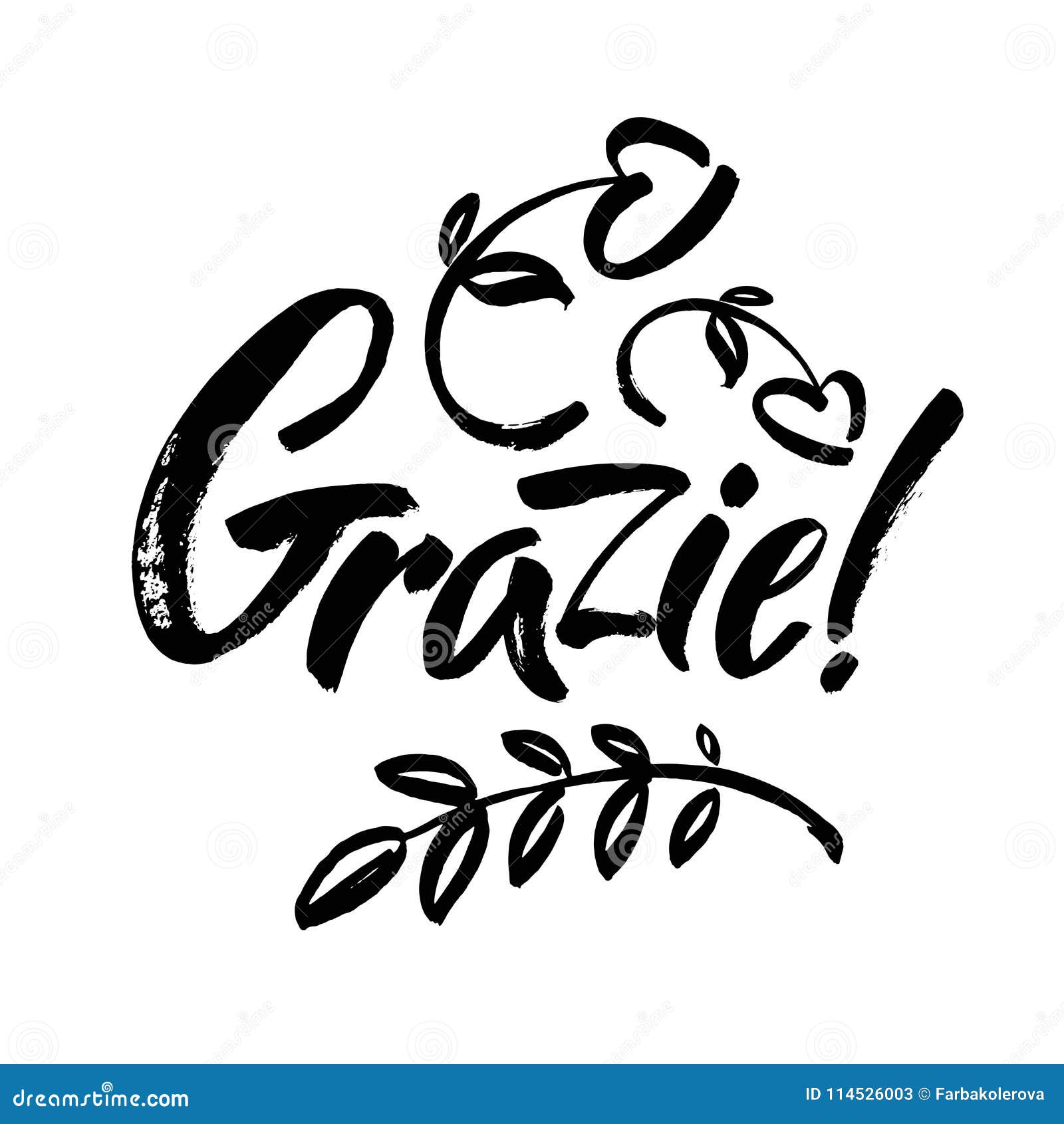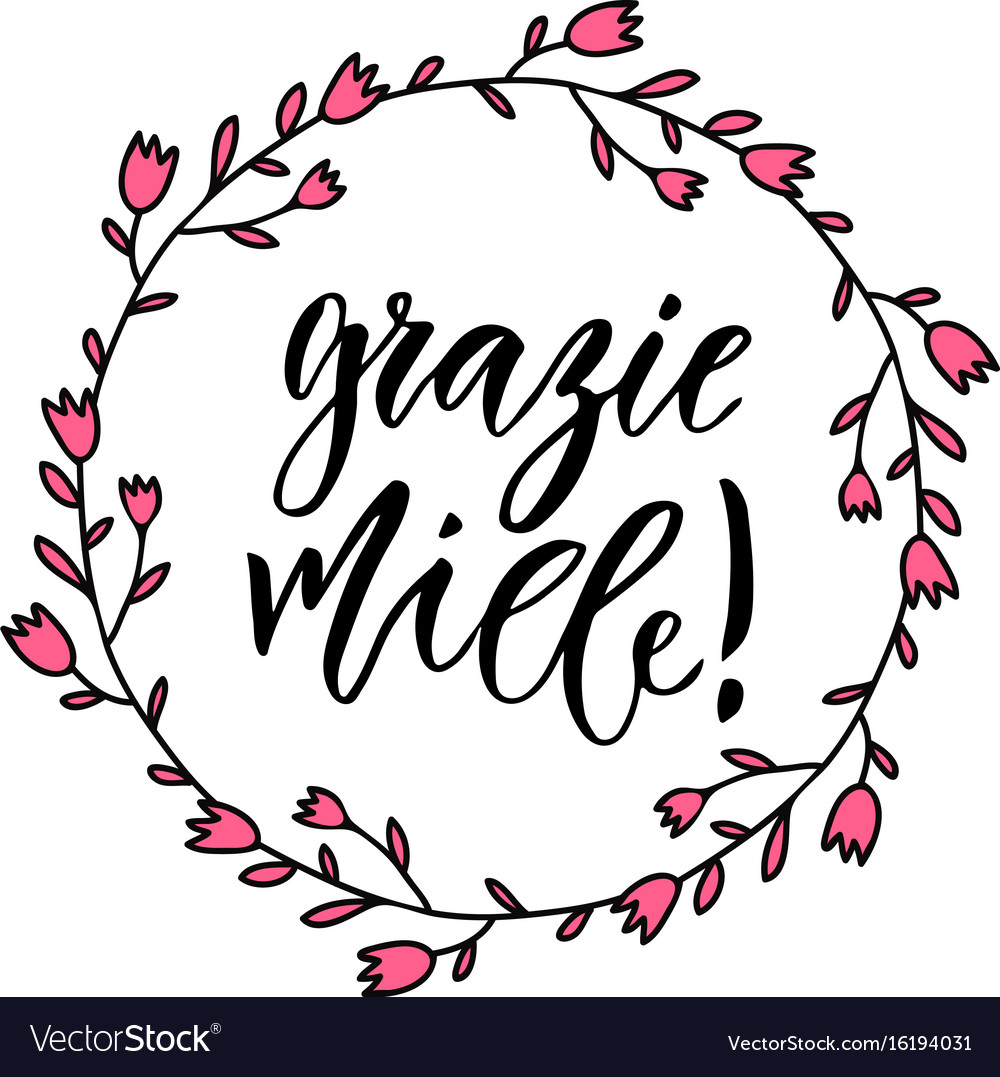Expressing Gratitude: Your Guide To Thank You In Italian
Connecting with Italians: Why "Thank You" Matters So Much
You know, being able to say thank you really does go a long way in showing humble gratefulness to someone, maybe for giving you something or helping you out, it's almost a universal gesture, as a matter of fact.
In Italian, the most basic way to express this feeling, and really to connect with people and start to master this beautiful language, is to learn how to say "thank you," alongside other polite expressions, you know.
- Dr Pepper Creamy Coconut
- What Is The Healthiest Energy Drink
- Bengali Viral Mms
- 4 Charles Prime Rib
- Minecraft Cherry Blossom House
Expressing gratitude is, in fact, essential for showing respect in any culture, and if you want to communicate with Italians and become fluent in their language, you’ll definitely need to learn how to say it, basically.
Table of Contents
- The Core of Italian Gratitude: Grazie
- Adding Emphasis: More Ways to Say "Thank You"
- When a Simple "Grazie" Isn't Enough: Deeper Expressions
- Responding to "Thank You" in Italian
- Formal vs. Informal: Choosing Your Words
- Pronunciation Tips for "Grazie" and Beyond
- Why Learning These Phrases Really Matters
- Frequently Asked Questions About Thank You in Italian
- Keep Practicing Your Italian Gratitude
The Core of Italian Gratitude: Grazie
"What is 'thank you' in Italian?" you might ask, and the answer, very simply, is "grazie," you know, it's the most basic way.
This is the simplest form, often used as a direct and common way to show appreciation, you know, for everyday gestures, like someone holding a door open or handing you something.
- Dominican Restaurant Near Me
- Ulta 21 Days Of Beauty
- Daisy Edgar Jones Movies And Tv Shows
- Bulgarian Split Squat Form
- Haley Joel Osment Movies
It's your go-to phrase, and it will serve you well in almost any situation, whether you're at a café, a shop, or just talking with friends, basically.
Learning how to express your gratitude in a language is, as a matter of fact, very important for building connections, and "grazie" is where it all starts, you know.
Adding Emphasis: More Ways to Say "Thank You"
While "grazie" is great, there are, as a matter of fact, so many more options to choose from if you want to spice it up a little and show different degrees of gratitude, you know.
We'll discuss the many Italian phrases you can use to express your thanks in different situations and for different reasons, giving you more ways to connect, basically.
Grazie Mille / Grazie Tante: A Thousand Thanks
To express a bit more appreciation, you could say "grazie mille," which literally means "a thousand thanks," or "grazie tante," which has a very similar meaning, you know.
These phrases are used when you feel particularly grateful, perhaps for a larger favor or a very kind gesture, like if someone helped you move furniture or spent a lot of time giving you directions, basically.
It's like saying "thank you very much," really, just with a touch more warmth and emphasis, showing that you truly value their effort, as a matter of fact.
You might use "grazie mille" if someone, you know, went out of their way to help you find a lost item, making a big difference in your day.
They are both easy 7 ways to express your gratitude in Italian, perfect for when a simple "grazie" doesn't quite capture the depth of your feelings, you know.
Grazie di Cuore: From the Heart
For truly heartfelt appreciation, there's "grazie di cuore," which translates to "thanks from the heart," so it's a very personal way to express gratitude, you know.
This is for those special moments, maybe when someone has gone above and beyond for you, actually, like offering comfort during a tough time or providing unexpected support.
It shows a deep, sincere level of thankfulness, and people really appreciate hearing it, you know, as it conveys genuine emotion.
Using "grazie di cuore" tells the person that their kindness touched you deeply, which is, you know, a powerful message in any language, basically.
It’s all about interacting with others, forging bonds, and fostering friendships, and this phrase certainly helps with that, as I was saying.
Molte Grazie: Many Thanks
Another way to add emphasis is "molte grazie," meaning "many thanks," which is quite straightforward, you know, and a good solid option.
It's a good alternative to "grazie mille" if you want to vary your expressions, more or less, and it carries a similar weight of appreciation.
You can use this in situations where you want to convey significant thanks without being overly emotional, basically, for example, after a helpful conversation or a generous gift.
This phrase is polite and respectful, suitable for various settings, and it clearly communicates your appreciation, you know, without being too casual.
It’s another one of the easy 7 ways to express your gratitude in Italian, adding to your repertoire of polite phrases, actually.
When a Simple "Grazie" Isn't Enough: Deeper Expressions
Sometimes, just saying "thanks" isn't quite enough, and you might want to, you know, use a verb or a more structured phrase to really show your appreciation, especially for significant help.
Learning how to say thank you in Italian and express degrees of gratitude with this complete guide means going beyond the basics, you know.
Ti Ringrazio / La Ringrazio: I Thank You
"Ti ringrazio" (informal) or "La ringrazio" (formal) literally means "I thank you," and it's a very direct way to express personal gratitude, you know, making the act of thanking more explicit.
Using the verb "ringraziare" (to thank) adds a slightly more formal or deliberate tone, which is good for certain situations, really, like thanking a professional or someone you don't know well.
It shows that you are actively performing the act of thanking, which can feel quite personal and considered, actually, rather than just a quick acknowledgment.
You would use "ti ringrazio" with friends or family, for example, after they've done you a favor, while "La ringrazio" would be for someone like a doctor or a shop owner, basically.
This distinction is important for showing proper respect in Italian culture, you know, as it demonstrates your awareness of social etiquette.
Le Sono Grato/a: I Am Grateful
For an even deeper expression of gratitude, you could say "Le sono grato" (if you're male) or "Le sono grata" (if you're female), which means "I am grateful to you," you know, it's a very profound statement.
This phrase conveys a sense of enduring thankfulness, not just for a single act, but for a general feeling of appreciation, as

Grazie Thank You Thanks In Italian Lettering Design Stock Vector

How To Say Thank You Italy In Italian at Ellie Roseby blog

Thank You In Italian